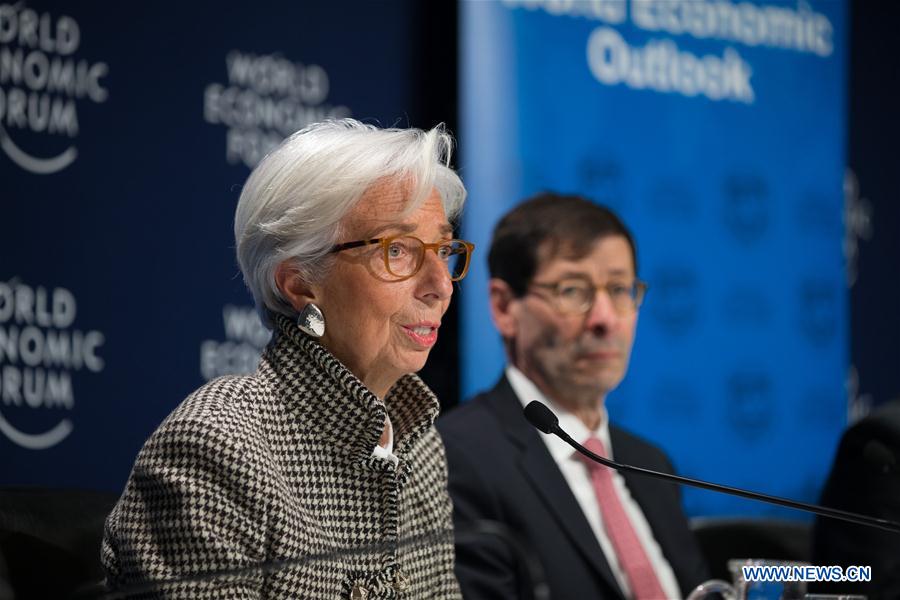 ?
?Managing Director of the International Monetary Fund (IMF) Christine Lagarde (L) and IMF Economic Counsellor and Director of Research Maurice Obstfeld attend a press conference on Update of the World Economic Outlook in Davos, Switzerland, Jan. 22, 2018. The IMF raised its global growth forecast for 2018 and 2019 on Monday by 0.2 percentage point to 3.9 percent, due to increased global growth momentum and the expected impact of the recently approved U.S. tax policy changes. (Xinhua/Xu Jinquan)
DAVOS, Switzerland, Jan. 22 (Xinhua) -- The International Monetary Fund (IMF) raised its global growth forecast for 2018 and 2019 on Monday by 0.2 percentage point to 3.9 percent, due to increased global growth momentum and the expected impact of the recently approved U.S. tax policy changes.
The upward revision was announced by Maurice Obstfeld, IMF economic counsellor and director of research, at a press conference on Update of the World Economic Outlook in Davos, Switzerland.
"This is good news. But political leaders and policymakers must stay mindful that the present economic momentum reflects a confluence of factors that is unlikely to last for long," warned Obstfeld.
The IMF also revised upward the growth of global output in 2017 to 3.7 percent, which is 0.1 percentage point faster than that projected in the fall and 0.5 percentage point higher than in 2016. The pickup in growth has been broad based, with notable upside surprises in Europe and Asia.
According to the report, risks to the global growth forecast appear broadly balanced in the near term, but remain skewed to the downside over the medium term.
"The global financial crisis may seem firmly behind us, but without prompt action to address structural growth impediments, enhance the inclusiveness of growth, and build policy buffers and resilience, the next downturn will come sooner and be harder to fight," he reiterated.
The IMF explained the upward revisions to the global outlook resulted mainly from advanced economies, where growth is expected to exceed 2.0 percent in 2018 and 2019.
However, the aggregate growth forecast for emerging markets and developing economies remain unchanged, with marked differences in the outlook across regions.















